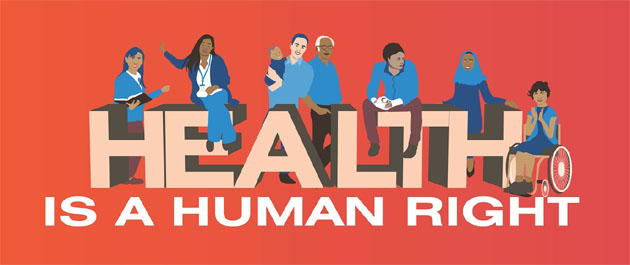Dr Rajiv Kumar Gupta
World Health Day was established in 1948 by the WHO, which chose the 7th of April to coincide with its own founding. Since then, the event has focused on various themes and health issues each year, encouraging global efforts to address these challenges. The importance of World Health Day lies in its ability to raise awareness about the necessity of maintaining good health for individuals and communities alike. It also provides a platform for governments, policymakers, and civil society to focus on pressing health challenges and collaborate on solutions.
World Health Day is an annual event, spearheaded by the World Health Organization (WHO), aimed at raising awareness about the importance of global health and drawing attention to key health challenges. This day is an opportunity for individuals, communities, and organisations worldwide to come together and work towards achieving the Sustainable Development Goals (SDGs) related to health.
The theme for this year is ‘My health, my right’. This year’s theme was chosen to champion the right of everyone, everywhere to have access to quality health services, education, and information, as well as safe drinking water, clean air, good nutrition, quality housing, decent working and environmental conditions, and freedom from discrimination. It signifies the importance of ‘Health is a human right’, i.e; 1. Safe and quality health care without any discrimination, 2. Privacy and confidentiality of your health information, 3. Information about your treatment and to informed consent, 4. Bodily autonomy and integrity, 5. Making decisions about your own health.
Around the world, the right to health of millions is increasingly coming under threat; diseases, disasters and pandemics loom large as causes of death and disability, also conflicts and wars are devastating lives, causing death, pain, hunger and psychological distress. Climate crisis is further taking away our right to breathe clean air. Air pollution is a silent killer and every year 7 million deaths occur due to exposure to both outdoor and household air pollution.
WHO Council on Economics of Health for All has found that at least 140 countries recognize health as a human right in their constitution, yet countries are not passing and putting into practice laws to ensure their populations are entitled to access health services, due to this more than half of the world’s population were still not fully covered by essential health services in 2021.
The FIVE A’s of the Right to Health include: Availability ( of sufficient quantity of functioning health facilities, goods and services for all), Accessibility ( of health facilities, goods and services to everyone), Acceptability ( that these health facilities, goods and services are people – centred and cater to the specific needs of diverse population), Adequate and Affordable (adequate and enhanced care through PHC and Health and Wellness Centres), Appropriate Technology ( to provide health care to all ). The various rights which we should champion for a better health are; Right to sexual and Reproductive Health and rights, Adolescent Health, Maternal and Child Health, Right to Traditional Medicines, Right to Safe drinking water, Right to Sanitation, Right to Clean Air, Right to Good Nutrition, Right to Housing, Right to Decent Working Conditions, Freedom from violence, discrimination and inequality.
Individuals and communities can actively participate to achieve Health for All in various ways:
a) Educate Yourself and Others – Learn about the SDGs and their connection to health. Share this knowledge with friends, family, and colleagues to raise awareness.
b) Advocate for Health Policies – Engage with policymakers, urging them to implement and support policies that promote health and well-being.
c) Volunteer – Join local health-focused organisations or initiatives, offering your time and skills to support their efforts.
d) Promote Healthy Living – Encourage healthy habits within your family and community by promoting regular exercise, a balanced diet, and mental well-being.
e) Support Clean Water and Sanitation Projects – Donate to or volunteer with organisations working to improve access to clean water and sanitation in underprivileged areas.
f) Reduce Food Waste – Be mindful of your food consumption and waste, and support initiatives that aim to reduce food waste and promote sustainable agriculture.
(The author is a professor and head Community medicine GMC Jammu)
Trending Now
E-Paper


